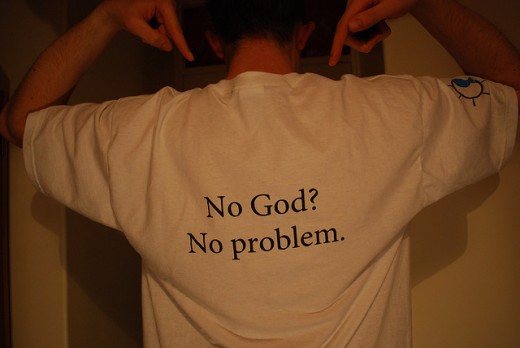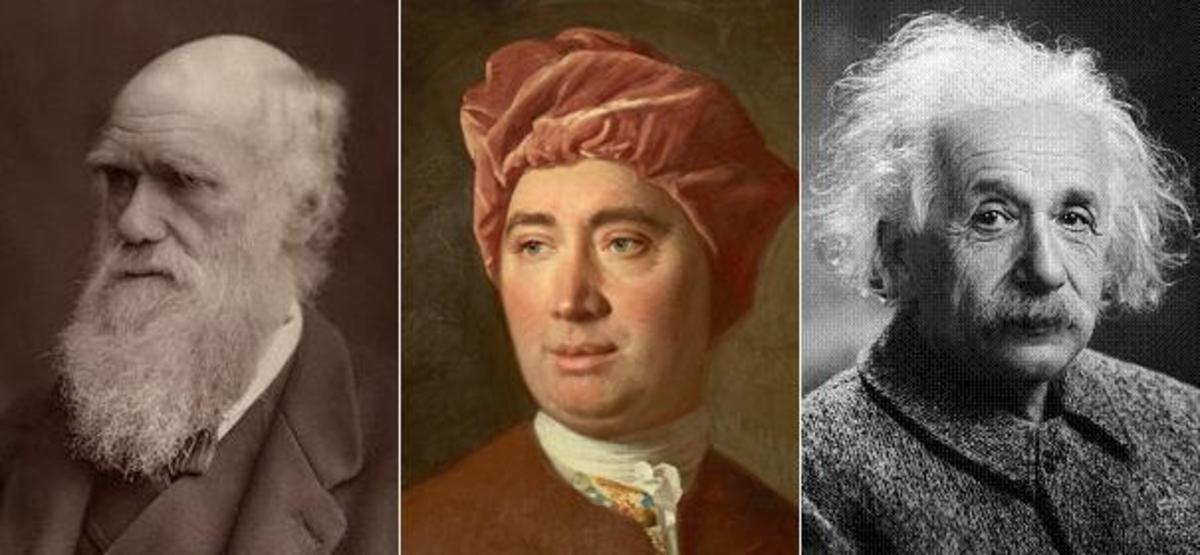Atheistic and Theistic Agnosticism
I consider myself to be an agnostic atheist, and I've come to realize that there are a lot of people who do not understand what an atheist really is, at the basic level. Read on to learn about the differences between agnostic atheists and agnostic theists.
Before exploring the concepts of Atheistic and Theistic Agnosticism, and for the benefit of the reader, the following groundwork should be laid out.
Agnosticism is the stance and outlook of a lack of knowledge, more specifically a lack of knowledge of the existence of a higher power, deity, God-like figure.
Theism is the stance of a belief in a God or gods, some form of higher power or diety.
Atheism is the rejection of belief in the supernatural, denial of the existence of God.

Atheism holds such a taboo position in society even as those who label themselves as atheists rise in number that it becomes more frequently found that a person will choose the label of agnosticism. The answer of "I don't know" is more readily accepted without offending a person than to strictly state actual beliefs, and this means that atheists become even more taboo. Understanding this concept is fundamental to understanding the reasons that individuals choose to identify as agnostic versus atheist, and even between Theistic and Atheistic Agnosticism.
How does all this stack up against "pure" atheism?
At the basic level, an agnostic person simply claims not to know.
An atheist flat out denies that there is any supernatural deity in existence.
Any other behaviors accredited to atheists depend entirely on the individual, and are nothing but biased stereotypes.
Once the definition of each term is broken down, the difference between a theistic agnostic individual and an atheistic agnostic individual become quite simple. As agnosticism reflects on an actual lack of knowledge of the certainty of God existing in whatever form, an agnostic atheist is someone who does not believe that God exists at all, and further does not claim to have knowledge of God's existance with any certainty. To be plain, an agnostic atheist does not believe in or know if God exists.
On the other hand, a theistic agnostic person may believe in God(s) and yet still not know for sure that the entity they believe in truly exists. These types of people may form loose belief structures based not on a particular dogma, but rather lean on a belief that a higher power may exist but is as yet of unknown style, purpose or - in more simplistic terms - believe that there may be a God or Gods, but reserve applying any existing religion's name or faith style to their beliefs until presented with clear proof of who is right, if any one faith has properly identified the Divine.
The Celestial Teapot
Bertrand Russell illustrated the concept of the celestial teapot as the idea that the burden of proof lies with a person making claims that cannot be scientifically verified. The statement written by him was that if he claimed a teapot orbitted the sun somewhere between Earth and Mars, he could not expect people to believe him because they could not prove him wrong. This analogy resonates very well with the modern atheist.
Combined with the concept of Occam's Razor (the concept that a simple theory is more likely to be true than the complex theory) the celestial teapot becomes a solid argument for the non-existance of God, or Gods, or "higher powers."








